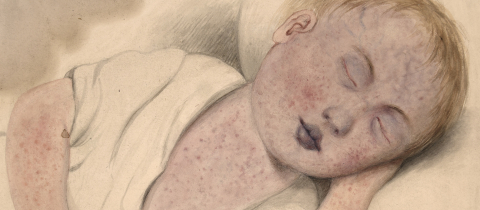This article was first published in The Montreal Gazette.
The recent announcement that some people will be getting a second COVID-19 vaccine that is different from their first has created some public confusion about the change in strategy. From the beginning, the official line was that your first and second doses had to be the same, but necessity and expediency have dictated a change in government policy. And in reality, the mixing and matching of vaccine doses will probably be OK.
The rationale for sticking with one type of vaccine for both your first and second dose is obvious. The studies that led to vaccine approval for the Pfizer, Moderna and AstraZeneca vaccines were done in this way, and there was a general consensus that we should follow the study protocols.
But a few issues recently have changed the pandemic landscape. The rise of variants of concern has led to a third wave that undid much of the progress of the past few months. Another issue is the problem of vaccine supply. While Pfizer has announced that it will increase shipments to Canada, Moderna is cutting back its planned delivery because of production problems, a huge supply of the Johnson & Johnson vaccine was spoiled due to human error and led to a delay of this vaccine’s arrival in Canada, and our supply of the AstraZeneca vaccine is drying up as doses manufactured in India are being redirected due to that country’s dire situation.
The clock is ticking and many people are due for their second dose, a dose that has already been pushed back beyond its initially studied interval. They will either have to endure a longer delay or take a booster manufactured by a different company.
Quebec recently announced that rather than risk letting people go unvaccinated, it would substitute the second Moderna dose with a Pfizer dose where necessary. While this is technically an untested strategy, it is important to remember that both Pfizer and Moderna are mRNA vaccines. The fact that they operate via a similar mechanism and have a similar efficacy makes it reasonable to assume that they are roughly equivalent. It is admittedly an assumption, but the risk of delaying people’s second dose for even longer is considered by many to be the more risky option.
The role of AstraZeneca in this situation is more nuanced. The AstraZeneca vaccine operates via a different mechanism. It is a viral vector vaccine and therefore works differently than either the Pfizer or Moderna mRNA vaccines. Superficially, it might seem like getting one dose of AstraZeneca and then a second dose of Pfizer would be riskier than a Pfizer-Moderna mix-and-match strategy. However, it should be noted that both vaccines were tested in large clinical trials and it is not clear how or even why they would interact with each other in a negative way. Second, some people have theorized that using vaccines with different mechanisms of actions might be beneficial. The idea is that different vaccines would stimulate the immune system in different ways and provide a broader, more robust immune response.
The theory is not without some merit, although it is still unproven. The definitive answer will come from the Com-COV study, which is now being run in the U.K. Com-COV is in fact two parallel studies looking at different combinations of vaccines to determine whether receiving different doses has any effect, positive or negative, on a person’s immune response. The results, once published, should provide more clarity on the issue.
In an ideal world, we obviously would have kept to the original study protocols. But the practical realities of this pandemic have forced us to change course and alter our positions in an effort to make the best of a bad situation. So substituting Pfizer for Moderna is a reasonable strategy, because the alternative is going unvaccinated, and that is much worse.







